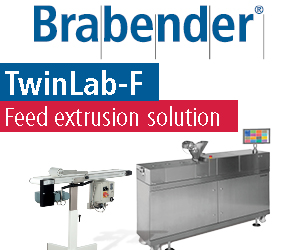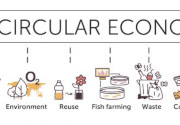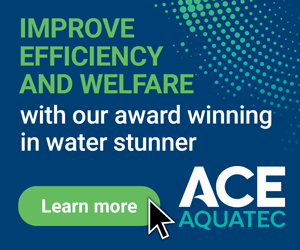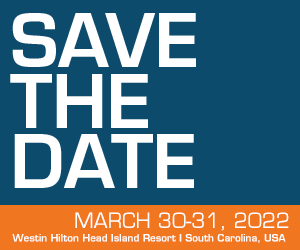| |
| |
 |
 |
| |
 |
|
@{mv_date_MMM d, yyyy}@ |
|
| |
 A new study on piscine orthreovirus (PRV) has lent credence to earlier findings that the virus poses a “very low risk” to British Columbia’s population of wild Pacific salmon and that they remain physically fit even when infected.
» Read more
A new study on piscine orthreovirus (PRV) has lent credence to earlier findings that the virus poses a “very low risk” to British Columbia’s population of wild Pacific salmon and that they remain physically fit even when infected.
» Read more
The CtrlAQUA report, which puts spotlight on both sea-based Semi-Closed Containment and land-based Recirculating Aquaculture System (RAS) underscores the positive outcomes achieved by early adopters of semi-closed systems as well as the factors that discourage investments in the technology.
» Read more
The agreement, which was announced July 14, will mean access to nets to Gael Force’s product range. The partnership will also see FISA exclusively manufacture a new SeaQureNet. Also part of the agreement, Gael Force is looking to establish a net servicing stating in the United Kingdom that will recruit and build additional resources for Scottish and international markets.
» Read more
|
| |
 |
 |
| |
|
| |

The brown trout is an iconic species across its natural European distribution and has been introduced throughout the World. Brown Trout: Biology, Ecology and Management offers a comprehensive review of the scientific information and current research on this major fish species. While the brown trout is the most sought species by anglers, its introduction to various waters around the world is causing serious environmental problems.
>> Learn More |
| |
|
| |
 Quality Salmon’s massive $2.4-billion project in Sotenäs, Sweden will create what’s touted as “a true circular industry” in land-based salmon farming. The facility will sit on 140-hectare leased land, hailed as the largest land-based salmon farm in terms of area and produce 100,000 tons of salmon per year.
» Read more
Quality Salmon’s massive $2.4-billion project in Sotenäs, Sweden will create what’s touted as “a true circular industry” in land-based salmon farming. The facility will sit on 140-hectare leased land, hailed as the largest land-based salmon farm in terms of area and produce 100,000 tons of salmon per year.
» Read more |
| |
|
| |
A Globe & Mail article published on July 18 reports quotes a chef from Vancouver who is refusing to serve farmed salmon from BC. He chooses to get it instead from New Zealand — a 12,000-kilometre flight which accrues 902 kg in CO2 emissions.
» Read more
|
|
In the tiny coastal town of Smyrna, North Carolina, sturgeon farmer I.J. Won has been using recirculating aquaculture systems (RAS) long before RAS made headlines as technology for salmon growouts. In this account, he makes the case for why RAS could be the best hope to raise fish cleanly.
» Read more
| | |
|
| |

|
| |
|
| |

|
| |
| |









